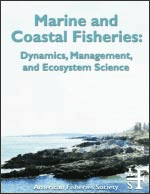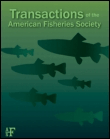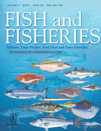
BOLETIM DO INSTITUTO DE PESCA
Scope & Guideline
Catalyzing dialogue on aquatic resource sustainability.
Introduction
Aims and Scopes
- Aquatic Biodiversity and Ecology:
Research on the diversity of aquatic species, their habitats, and ecological interactions, with an emphasis on conservation and management strategies. - Aquaculture Practices and Innovations:
Studies involving aquaculture techniques, including biofloc technology, dietary supplements, and larviculture methods, aiming to enhance production efficiency and fish health. - Fisheries Management and Policy:
Analysis of fisheries management practices, regulations, and the socio-economic aspects of fisheries, ensuring sustainable exploitation of aquatic resources. - Environmental Impact Assessments:
Investigations into the environmental effects of aquaculture and fishing practices, including studies on water quality, habitat alteration, and species interactions. - Fish Physiology and Health:
Research into the physiological responses of fish to various environmental conditions, dietary influences, and health management strategies.
Trending and Emerging
- Biofloc Technology in Aquaculture:
There is a growing emphasis on biofloc technology, which enhances shrimp and fish farming efficiency. Research is increasingly focused on optimizing feeding strategies and improving health outcomes in aquaculture systems. - Sustainability and Environmental Compliance:
Recent studies are increasingly addressing compliance with environmental regulations, such as the Brazilian Forest Code, indicating a trend towards integrating sustainable practices into aquaculture and fisheries. - Genetic and Physiological Studies:
Emerging research is focusing on the genetic and physiological aspects of fish species, including studies on sex reversal and growth responses, which are essential for improving aquaculture practices. - Integrated Multitrophic Aquaculture:
There is a notable rise in studies exploring integrated multitrophic aquaculture, which promotes ecological balance and resource efficiency by combining different species in farming systems. - Technological Applications in Fisheries:
The application of technology, including GIS and simulation modeling, is increasingly evident in fisheries studies, reflecting a trend towards data-driven management and assessment strategies.
Declining or Waning
- Traditional Fishing Techniques:
Research focusing on traditional or artisanal fishing methods has become less prominent, possibly due to a shift towards more sustainable and technology-driven approaches in fisheries. - Invasive Species Impact Studies:
While still relevant, papers specifically addressing the impacts of invasive species are appearing less frequently, indicating a potential shift towards broader ecological studies or management strategies. - Aquatic Plant Studies:
Research on aquatic plants, particularly their cultivation and environmental roles, has seen a decline, possibly overshadowed by more pressing issues in fish and shrimp aquaculture.
Similar Journals

ACTA ICHTHYOLOGICA ET PISCATORIA
Fostering collaboration in aquatic research.ACTA ICHTHYOLOGICA ET PISCATORIA is a distinguished peer-reviewed journal dedicated to the field of ichthyology and fisheries science, published by PENSOFT PUBLISHERS since its establishment as an open-access publication in 1970. Based in Poland, this journal serves as an essential platform for researchers, professionals, and students aiming to contribute to the scientific understanding of aquatic life. With an impressive H-index reflecting its growing influence, ACTA ICHTHYOLOGICA ET PISCATORIA is currently ranked in the Q3 quartile within both the Animal Science and Zoology and Aquatic Science categories. According to Scopus, it holds a rank of #227 in Animal Science and Zoology and #147 in Aquatic Science, demonstrating its relevance and contribution to these fields. The journal’s commitment to open access ensures that research findings are widely disseminated, fostering collaboration and knowledge sharing among the scientific community. With a historical scope extending from 1996 to 2024, ACTA ICHTHYOLOGICA ET PISCATORIA remains a vital resource for advancing aquatic research and fostering new insights into the complexities of fish biology and fisheries management.

Marine and Coastal Fisheries
Navigating contemporary challenges in aquatic ecosystems.Marine and Coastal Fisheries, published by Wiley, is a leading open access journal that has been dedicated to advancing the field of fisheries science since its inception in 2009. With an esteemed Q1 ranking in Aquatic Science and a Q2 ranking in Ecology, Evolution, Behavior and Systematics as of 2023, the journal actively contributes to the understanding and management of marine and coastal ecosystems.
This journal serves a diverse audience ranging from researchers and practitioners to students, providing a platform for high-quality peer-reviewed articles that address contemporary challenges in fisheries management and conservation. With a commitment to global accessibility, Marine and Coastal Fisheries promotes the dissemination of scientific knowledge to enhance sustainable practices in marine environments, making it an essential resource for those invested in the health of aquatic ecosystems. To explore the latest research and insights, visit the journal's website and engage with the thriving community of marine science professionals.

TRANSACTIONS OF THE AMERICAN FISHERIES SOCIETY
Illuminating the path for fisheries innovation and sustainability.TRANSACTIONS OF THE AMERICAN FISHERIES SOCIETY, published by Wiley, is a leading journal dedicated to the field of fisheries science and aquatic ecology, with a rich history dating back to its inception in 1872. As an esteemed publication within the realms of Aquatic Science and Ecology, Evolution, Behavior, and Systematics, it currently holds a Q2 quartile ranking, demonstrating its significance and influence in these disciplines. The journal is not open access, which enables a curated peer-review process while ensuring high-quality research dissemination. The journal serves as a vital platform for scholars and practitioners alike, providing essential insights into the management and conservation of aquatic resources. Its commitment to addressing contemporary challenges faced in fisheries and aquatic environments makes it indispensable for researchers, professionals, and students seeking to contribute to this dynamic field.

CANADIAN JOURNAL OF FISHERIES AND AQUATIC SCIENCES
Unveiling the mysteries of aquatic ecosystems.The Canadian Journal of Fisheries and Aquatic Sciences, published by Canadian Science Publishing, stands as a premier interdisciplinary journal dedicated to advancing knowledge in the fields of aquatic sciences, ecology, and evolutionary biology. With a longstanding history of publication since 1980, this journal delivers high-quality, peer-reviewed research that contributes to the understanding of aquatic ecosystems and the sustainable management of fisheries. The journal is esteemed for its rigorous standards and currently holds a Q1 ranking in both Aquatic Science and Ecology, Evolution, Behavior, and Systematics as of 2023, evidencing its significant impact in these critical areas. Researchers, professionals, and students alike can expect compelling explorations of both fundamental and applied aspects of aquatic sciences. While the journal offers traditional access, it remains committed to disseminating pivotal research findings to foster a vibrant community of scholars and practitioners striving towards innovative solutions for aquatic environmental challenges.

SU URUNLERI DERGISI
Pioneering Research for Aquatic SustainabilitySU URUNLERI DERGISI, published by EGE UNIVERSITY, FACULTY OF FISHERIES, is a premier open-access journal dedicated to advancements in aquatic sciences and fisheries research. With the ISSN 1300-1590 and E-ISSN 2148-3140, this journal has been committed to disseminating high-quality research since 1984, offering valuable insights into the management and conservation of aquatic resources. Based in BORNOVA-IZMIR, Turkey, the journal serves as a crucial platform for researchers, professionals, and students who are actively engaged in the study of fishery practices, aquaculture, and related environmental challenges. As a resource for innovative and impactful studies, SU URUNLERI DERGISI encourages submissions that foster collaboration and advancement within the aquatic research community.

INDIAN JOURNAL OF FISHERIES
Exploring the depths of fishery research in India.Welcome to the Indian Journal of Fisheries, an esteemed publication of the Central Marine Fisheries Research Institute, dedicated to advancing the field of aquatic sciences. Established in 1974, this journal serves as a crucial platform for researchers, professionals, and students interested in the dynamics of fishery research within the Indian context and beyond. With an impact factor highlighting its rigorous peer-review standards, the journal publishes research that significantly contributes to the understanding of fisheries management, conservation, and sustainable practices. Although currently categorized in Q4 for Aquatic Science (2023) and ranked #215 out of 247 in Scopus, its increasing visibility demonstrates the journal's dedication to enriching the scientific discourse surrounding aquatic ecosystems. Located in Kochi, India, and published intermittently from 1977 to 2024, it seeks to bridge knowledge gaps while promoting innovative methodologies in fishery sciences. While not an open-access journal, it fosters a vital exchange of scholarly work that informs fishing practices, policy, and ecological considerations vital to both national and global fisheries. Join us in exploring the intricate world of fisheries through our comprehensive collection of research articles, reviews, and case studies.

MARINE AND FRESHWATER RESEARCH
Bridging science and environmental stewardship.Marine and Freshwater Research is a prestigious journal published by CSIRO PUBLISHING that serves as a key platform for the dissemination of cutting-edge research in the fields of Aquatic Science, Ecology, and Oceanography. With an impactful presence since its inception in 1948, the journal provides critical insights into the dynamics of freshwater and marine ecosystems, promoting interdisciplinary approaches that contribute to our understanding of biodiversity and sustainability. Currently ranked in the Q2 category across major scientific domains, including Ecology and Aquatic Science, it enjoys a robust academic reputation supported by impressive Scopus rankings, such as Rank #66/247 in Aquatic Science and Rank #44/145 in Oceanography, reflecting its high citation impact and relevance. While offering a subscription-based access model, the journal remains dedicated to fostering dialogue and innovation within the scientific community, aiming to bridge the gap between research findings and practical applications in environmental management. Located in Australia, Marine and Freshwater Research is an essential resource for researchers, professionals, and students dedicated to exploring the complexities of aquatic ecosystems and advocating for their preservation.

FISH AND FISHERIES
Navigating the complexities of fish and fisheries science.FISH AND FISHERIES is a premier academic journal published by Wiley, dedicated to advancing knowledge in the fields of aquatic science, ecology, and oceanography. With an impressive impact reflected in its 2023 categorization in the Q1 quartile across multiple disciplines—including Aquatic Science and Management, Monitoring, Policy and Law—it serves as an essential resource for researchers, professionals, and students alike. This journal includes rigorous, peer-reviewed articles that address the multifaceted aspects of fish biology, conservation, and sustainable fisheries management. The journal's Scopus rankings further validate its significance, with top positions in Earth and Planetary Sciences, and its commitment to fostering scientific dialogue in an era where the oceans and aquatic ecosystems face unprecedented challenges. Despite not being an Open Access journal, FISH AND FISHERIES remains a vital platform for innovative research that informs policy and drives stewardship of fish populations and their habitats.

Journal of Ichthyology
Exploring the Depths of Fish Biology and EcosystemsJournal of Ichthyology, published by PLEIADES PUBLISHING INC, is a respected periodical in the field of aquatic sciences and biological studies, focusing extensively on the study of fish and their ecosystems. With an ISSN of 0032-9452 and E-ISSN of 1555-6425, this journal serves as an essential platform for researchers seeking to publish innovative findings related to ichthyology and broader aquatic biological sciences. Although currently not an open-access journal, its high relevance is reflected in its impact factor and varied audience, addressing pressing issues in biodiversity, conservation efforts, and fish biology. The journal's classification indicates a Q3 ranking in Agricultural and Biological Sciences and a Q4 ranking in Aquatic Science for 2023, affirming its contributions to the field despite its percentile standings in Scopus ranking. The journal has a publication history that spans critical converged years from 1976 to 2024, making it a vital resource for ongoing research developments and scholarly discourse. For academics, professionals, and students alike, the Journal of Ichthyology remains a key resource for advancing knowledge and enhancing the understanding of fish biology and their ecological impacts.

ISRAELI JOURNAL OF AQUACULTURE-BAMIDGEH
Exploring the depths of aquatic sciences for a better tomorrow.Welcome to the Israeli Journal of Aquaculture-Bamidgeh, published by AquacultureHub Inc, a pivotal platform dedicated to advancing the field of aquaculture studies since its inception in 1988. With a focus on innovative research and practical applications within the realms of Agronomy and Aquatic Sciences, this journal has established a reputation for disseminating high-quality findings that contribute to sustainable practices in aquatic farming. The journal, although classified in the Q3 and Q4 quartiles for its respective categories, offers valuable insights for researchers and practitioners alike, allowing them to stay abreast of developments in aquaculture challenges and solutions. While it's currently not an Open Access journal, the Israeli Journal of Aquaculture-Bamidgeh is committed to providing a thorough avenue for scholarly exchange and fostering collaborations across the global aquaculture community. Explore impactful studies and the latest trends to enhance your knowledge and research in this vital sector.